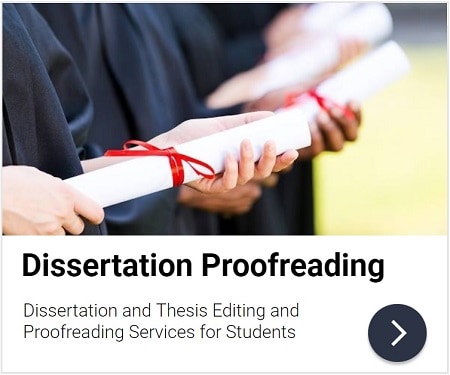2.2 Writing and Revising for Your Supervisor: The First Piece(s) of Formal Text
There is no universal rule regarding when a doctoral candidate should or will submit the first piece of formal writing associated with a thesis to his or her supervisor, or what that first piece of writing should be, but this initial stage in the thesis process is almost universally crucial. If you have already taken an undergraduate or postgraduate course from your supervisor, you are at an advantage, because you have likely already written research papers for him or her, who will therefore be familiar with your writing, while you will be familiar with his or her expectations, and since you are planning to work with this same person again, you have presumably established a successful working relationship. In most cases this familiarity will not be there, however, and some supervisors will want to see some of your writing immediately, especially if your first language is not English, to ensure that any problems that might hinder the successful completion of the thesis are identified and resolved at once (and if there are significant problems with your written English, you may have to seek additional help, since most supervisors will not have the time and some will not have the skills or knowledge to help you: see Chapter 5 for advice on writing formal scholarly English).
You may be able to share some of your earlier writing with your supervisor to satisfy this requirement, but many supervisors will want to see a new piece of writing associated directly with the thesis you are planning. Although it is sometimes tempting to postpone writing for your supervisor until you feel you have truly worthwhile information and ideas to share (such as a perfectly polished chapter), writing something related to the thesis, no matter how insignificant that ‘something’ may seem, initiates the process of progressive writing on a more formal basis and provides an opportunity for you as well as your supervisor to identify and ideally to address issues connected with both the thesis itself and your methods of written communication.
Your supervisor may ask you to write up some of your initial ideas about what you would like your thesis to be, and indeed a good way to start writing and even talking about your thesis is to review with your supervisor the prospectus of your research and thesis that you submitted when applying for your doctoral degree or for the thesis option or stage of your doctoral degree. If you have not prepared a prospectus up to this point, early meetings with your supervisor provide a good opportunity to design at least a skeletal plan or intention for the thesis, and if you already have an effective prospectus, defining its structure or expanding its content may be in order. While discussing and designing your prospectus, be sure that you consider any length requirements or limitations for the thesis set by your university or department, as your thesis will need to be long enough to meet the minimum length (or word count) required, but not so long that it exceeds the maximum length (or word count) allowed. On the other hand, your supervisor may want you to begin by expressing your thoughts about existing scholarship related to your topic that you have already read or will be reading in the near future, or perhaps to share reports on any results you may have achieved in early trials or surveys. The preparatory writing I have suggested in Section 2.1 will be especially useful when fulfilling such requests.
Often a supervisor will want you to begin working on your proposal chapters (see Chapter 3) as soon as possible, especially if your research is well under way, so he or she may ask you to draft the introduction, the literature review or the methodology chapter as the first piece of writing you have him or her read. This, too, is a good strategy because the commentary you receive will ideally help you not only with revising that chapter (which you may have to do at once if your supervisor deems it necessary), but also with composing the others. It is usually not wise to postpone the exchange of writing and feedback beyond this, however – to write all three proposal chapters, for example, before receiving comments from your supervisor – because you want to make sure you are on the right track rather than wasting valuable time drafting work that makes use of practices which may not be useful or acceptable. In addition, if it turns out that you and your supervisor simply do not see eye to eye regarding your intentions for your thesis and your ways of writing it, that, too, you need to know sooner rather than later so that you can compromise or (in extreme cases) look into the possibility of a different supervisor.
Apart from ensuring that the content and proficiency of your written English will meet the expectations of your supervisor, the exchange of a first piece of writing also provides an excellent opportunity to decide on various aspects of style and format. Universities, disciplines and departments differ in their requirements, so do check to see if a particular set of guidelines or a specific style guide is recommended as appropriate for your thesis, and pay special attention to the method and style that should be used for references: it is always best to begin formatting these correctly as you start to write because altering the format of references can be extremely time-consuming. Supervisors (as well as other members of thesis committees) sometimes have certain preferences even if a specific style guide is indicated, so you may want to ask about this before you begin writing. On the other hand, your supervisor may want you to sort out for yourself how best to format aspects of your proposal and thesis, such as references, tables and headings, in which case it is a good idea to consult successful theses that have recently been completed in your department or discipline to see how their authors dealt with formatting in general and references in particular (see also Chapters 6–8 for advice on formatting various elements of a thesis).
Whether you are following university instructions or guidelines, using a specific style guide, emulating effective models you have discovered or designing your own system of formatting, it is essential to observe consistency throughout the writing you do for your thesis and share with your supervisor. Such consistency will not only make your writing clearer for readers, but also make your job a much easier one when it comes time to put all that writing together into a complete thesis. If there are problems or inconsistencies with the way in which you follow required styles or formats or devise your own, you may hear about it from your supervisor after he or she has read your first piece of writing, but some supervisors will deem this secondary to the content of your writing, so you may need to take the initiative and pointedly address the topics of style and format with your first piece of writing in front of both you and your supervisor in order to sort out exactly how you should proceed from that point.
It is difficult to lay enough stress upon the importance of taking the initiative regarding content as well as style and format while working with your supervisor (and later with your thesis committee as a whole). A few supervisors will provide all the information you need without being asked, but in most cases you will have to raise some matters yourself in order to learn what you need to know. Make sure that you set up a meeting with your supervisor after he or she has read your first piece of writing and you have had an opportunity to digest his or her commentary. Ask about any feedback that is not clear. Establish solutions to problems. Determine which issues are essential, requiring immediate attention, and which are optional, necessitating further thought. Raise concerns that you have about the thesis or the directions your supervisor would like you to take. Test the waters, so to speak, in which the two of you will be swimming in close coordination for some time by trying to learn as much about your supervisor and his or her expectations as he or she is hoping to learn about you and your approach to your thesis.
Remember that you are paying for the degree and the guidance you need, and while being polite, considerate and respectful towards your supervisor and his or her ideas is essential at all times, you should nonetheless voice your opinions when you encounter opposition regarding an approach that you think is correct for your work. This may take some careful explanation and persuasion as well as confidence and diplomacy – you may, for example, have to go away and think about the matter before addressing it in detail – but this, too, is excellent preparation for writing and defending a persuasive thesis. By all means, do not leave issues that trouble you unexpressed and unresolved: confusion and uncertainty do not establish solid ground on which to move forward, and neither serious problems nor significant differences of opinion are simply going to go away if you continue writing. This is your first formal opportunity to establish many aspects of your thesis and to improve them in response to constructive criticism, so use it well.
PRS Tip: Although few doctoral candidates would want a second set of eyes to examine their preliminary efforts at thinking through their ideas, assessing the relevant literature and reporting the results of experiments and trials, there are certainly some students who will appreciate the services of a professional proofreader when it comes time to share their more formal writing with their supervisor and/or thesis committee. If this is the case for you, please feel free to send any or all of your early chapters to PRS for careful proofreading. It may be a good idea to mention to your supervisor or committee members your intention to have a professional academic or scientific proofreader work on your writing, because some committee members may not want you to do so, but in most cases there will be no objection. If you are having particular problems with writing grammatically correct English or formatting aspects of your chapters and references, your supervisor and committee members may even suggest that you seek such professional help because they rarely have the time or the inclination to provide guidance on such matters. The proofreaders at PRS, on the other hand, are experts in the composition and presentation of all aspects of scholarly English writing and will be able to correct errors and inconsistencies and provide objective advice aimed at improving your ability to communicate in ways that are appropriate and effective for doctoral level work and your particular discipline and topic.
Why PhD Success?
To Graduate Successfully
This article is part of a book called "PhD Success" which focuses on the writing process of a phd thesis, with its aim being to provide sound practices and principles for reporting and formatting in text the methods, results and discussion of even the most innovative and unique research in ways that are clear, correct, professional and persuasive.
The assumption of the book is that the doctoral candidate reading it is both eager to write and more than capable of doing so, but nonetheless requires information and guidance on exactly what he or she should be writing and how best to approach the task. The basic components of a doctoral thesis are outlined and described, as are the elements of complete and accurate scholarly references, and detailed descriptions of writing practices are clarified through the use of numerous examples.
The basic components of a doctoral thesis are outlined and described, as are the elements of complete and accurate scholarly references, and detailed descriptions of writing practices are clarified through the use of numerous examples. PhD Success provides guidance for students familiar with English and the procedures of English universities, but it also acknowledges that many theses in the English language are now written by candidates whose first language is not English, so it carefully explains the scholarly styles, conventions and standards expected of a successful doctoral thesis in the English language.
Individual chapters of this book address reflective and critical writing early in the thesis process; working successfully with thesis supervisors and benefiting from commentary and criticism; drafting and revising effective thesis chapters and developing an academic or scientific argument; writing and formatting a thesis in clear and correct scholarly English; citing, quoting and documenting sources thoroughly and accurately; and preparing for and excelling in thesis meetings and examinations.
Completing a doctoral thesis successfully requires long and penetrating thought, intellectual rigour and creativity, original research and sound methods (whether established or innovative), precision in recording detail and a wide-ranging thoroughness, as much perseverance and mental toughness as insight and brilliance, and, no matter how many helpful writing guides are consulted, a great deal of hard work over a significant period of time. Writing a thesis can be an enjoyable as well as a challenging experience, however, and even if it is not always so, the personal and professional rewards of achieving such an enormous goal are considerable, as all doctoral candidates no doubt realise, and will last a great deal longer than any problems that may be encountered during the process.
Interested in Proofreading your PhD Thesis? Get in Touch with us
If you are interested in proofreading your PhD thesis or dissertation, please explore our expert dissertation proofreading services.


Services
PhD Dissertation Proofreading
Our PhD dissertation proofreaders specialise in improving grammar, sentence structure, citations, references, clarity, logical flow and readability.
Master’s Dissertation Proofreading
To avoid failure and its consequences, send your dissertation to our master’s dissertation proofreading service.
Scientific Dissertation Proofreading
Our scientific proofreaders specialise in correcting and perfecting the language, editorial styles and references across all science fields.
Headquarters
Dissertation-Proofreading.com
Allia Future Business Centre
The Guildhall
Market Square
Cambridge
CB2 3QJ
United Kingdom
More Expert Proofreading Services
Journal Editing
Journal article editing services
PhD Thesis Editing
PhD thesis editing services














